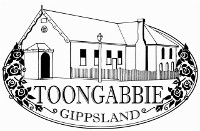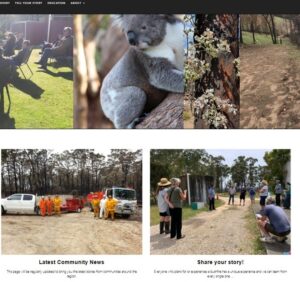Emergency preparedness
How prepared are you for an Emergency?
Toongabbie has a history of fire and floods and as a community member you are valuable in prevention, preparation and recovery from the impacts of emergencies.
This page provides links to relevant websites and information packages to assist you in preparing for emergencies.
Toongabbie suffers from mobile blackspots. There is limited and unreliable mobile phone coverage, if possible, have a land line phone in your house as a back up.
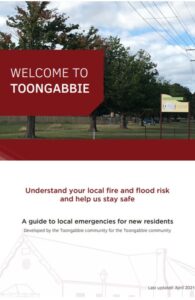
Welcome Packs
Welcome Packs are available to new residents and include information on Emergency Preparedness. The main brochure can be downloaded here or collected from the General Store.
Community Bushfire Connection
The Community Bushfire Connection website has information on bushfires in Gippsland including history, tell your story and the Toongabbie specific page.
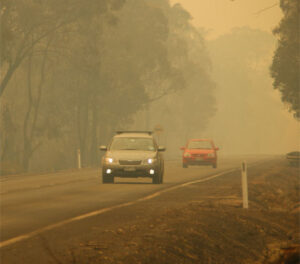
Emergencies
The Latrobe City website has information regarding emergency contacts for fire and flood.
Have you heard of the Latrobe Valley Information Network?
The Latrobe Valley Information Network is a region wide real-time environmental monitoring network combining bushfire and flood detection. Visit the website to see the current information. For more information refer to the flyer.
Ways you can prepare
- Prepare your property – visit the CFA’s website for resources, checklists and planning templates
- Have a plan and a back up plan, practice it regularly and tell your friends and neighbours what it is
- Know your neighbours and check if any are vulnerable or require assistance before/during/after emergencies
- Download useful emergency apps onto your phone BEFORE emergency events and set alerts ON
- Check whether the CFA trucks can get onto your properties
- Plan for your animals (pets, equine, livestock and others)
- Join community meetings and events on preparedness and other related community initiatives/ activities
- Create a phone tree with your neighbours
- Have an emergency pack ready to go – there are prompts on the CFA website
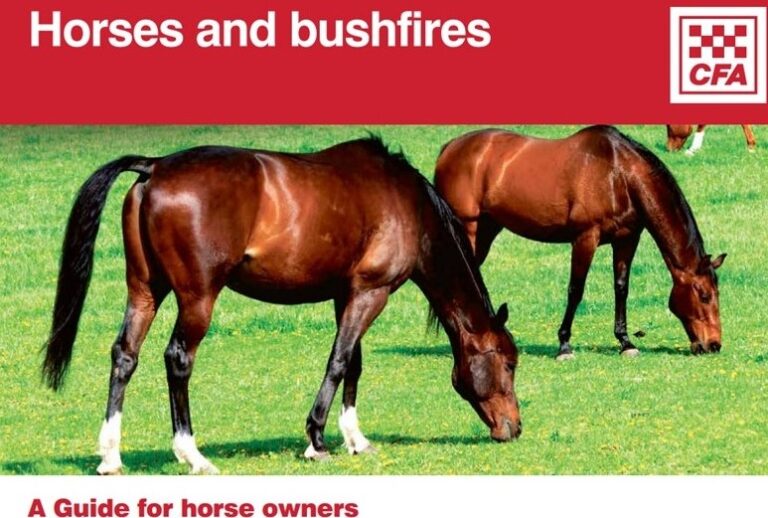
Horses and Livestock
Have you prepared your horses, livestock and other animals for emergency?
Where will you go? How will you get there? What will your animals need?
These are all things that need to be considered and prepared for.
Things to consider
- There is no Neighbourhood Safer Place – Place of Last Resort in Toongabbie.
- There will likely be roadblocks and impromptu congregating at the cricket pitch and/or recreation reserve during a fire event. These are not deemed safe evacuation points. It is safest for you and more helpful for the emergency services if you leave early. We’ve learned from past fires that both main roads (to Sale and to Traralgon) can get smoky and dangerous to drive on, all the more reason to leave early and avoid these conditions.
- Toongabbie suffers from mobile blackspots. There is limited and unreliable mobile phone coverage and the phone tower reaches capacity when overwhelmed. If possible, have a land line phone in your house as a back up.
- It’s better to rely on the radio for emergency updates and warnings (don’t forget spare batteries in your emergency bag). The phone coverage is too unreliable to depend on accessing social media, apps or websites.
- Don’t rely on an ERC opening. Options for emergency relief centres (ERC) at Traralgon and Sale can be limited or the centres open too late. When leaving early, consider who you know in major towns like Traralgon or Sale who you may be able to stay with temporarily.
- Get to know your rights and responsibilities of being a rural land owner, particularly with regards to fire prevention works and land clearing, such as the 10-30/10-50 rule. Contact Council on 1300 367 700 for more information about what you can, can’t and what you’re obliged to do to play your part in fire prevention and community preparedness.
- If you plan to stay and defend your property, ensure you are very well prepared and have enough water – invest in water tanks prior to fire season. Refer to https://www.cfa.vic.gov.au/plan-prepare/stay-and actively-defendfor more information.
- In previous fire events we’ve lost access to town water and experienced low water pressure.
- Plan for the smallest details, like having a full tank of fuel in your car and putting personal/ sentimental things in boxes or a suitcase ready to go.
- Have adequate insurance for your property and assets, use the cover straightaway to maximise the benefits. For information on bushfire insurance, visit: https://www.disasterlegalhelp.org.au/
